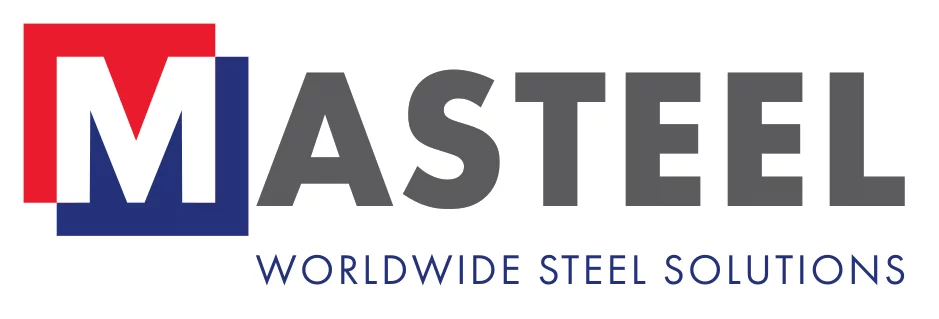BS 1501 2
BS1501: Part 2: 1988 is the old British Standard specification for alloy steels used for pressure purposes.
The standard has now been replaced with EN10028: Part2 :2006 but we have included information about the standard and relevant steels for cross reference purposes. This is because many of our clients still refer to the older steel specifications.
Part of this standard includes steels with increased chromium and molybdenum which promotes higher corrosion and heat resistance. These steels, which are used in the fabrication of pressurised vessels and boilers, have been supplied to the oil and gas industry for many years.
BS 1501 622B
Although no longer a currently specified steel grade, 622B is still referred to by our customers and as a consequence we have included information here for cross referencing purposes.
622B is a chrome moly pressure vessel grade steel for use in elevated temperature service. The BS standard has now been superseded with the euro norm standard EN10028. The material benefits from greater tensile and yield strength and has good weldability characteristics. The steel is used commonly in the fabrication of industrial boilers and pressurised tanks found throughout the oil gas and petrochemical industry.
Please refer to the technical information for Grade 622B steel below.
Mechanical Properties of BS 1501 622B
| Grade | Thickness (mm) | Tensile Strenth | Yield Strength | Elongation (A) |
|---|---|---|---|---|
| 620B | <100 | 515/690 | 310 | 16 |
| >100 <150 | 500/670 | 285 | 16 |
Chemical Composition of BS 1501 622B
| % | |
|---|---|
| Carbon (C) | 0.09/0.15 |
| Silicon (Si) | 0.50 |
| Manganese (Mn) | 0.30/0.60 |
| Phosphorus (P) | 0.025 |
| Sulphur (S) | 0.015 |
| Chromium (Cr) | 2.00/2.50 |
| Molybdenum (Mo) | 0.90/1.10 |
| Nickel (Ni) | 0.30 |
| Others | 0.32 |
BS 1501 621B
Grade 621B has long been superseded by EN10028 but as our clients still make reference to this chrome moly grade, we have included details here, which should be used for cross reference purposes.
621B is a chrome moly steel for use in pressurised vessels and boilers found commonly in the oil and gas industry. The material has good tensile and yield strength and is designed to operate in higher working temperatures. 621B has good weldability and corrosion resistance.
Please refer to the technical information below for this particular steel grade.
Mechanical Properties of 621B
| Grade | Thickness (mm) | Tensile Strenth | Yield Strength | Elongation (A) |
|---|---|---|---|---|
| 620B | <75 | 515/690 | 340 | 18 |
| >75 <100 | 500/670 | 320 | 16 | |
| >100 <150 | 490/650 | 310 | 16 |
Chemical Composition of 621B
| % | |
|---|---|
| Carbon (C) | 0.09/0.17 |
| Silicon (Si) | 0.50/0.80 |
| Manganese (Mn) | 0.40/0.65 |
| Phosphorus (P) | 0.025 |
| Sulphur (S) | 0.015 |
| Chromium (Cr) | 1.00/1.50 |
| Molybdenum (Mo) | 0.45/0.60 |
| Nickel (Ni) | 0.30 |
| Others | 0.32 |
BS 1501 620B
Grade 620B is an older British Standard for pressure vessel grade chrome moly steel which has now been superseded by EN10028.
Although now out of date, many of our customers still refer to 620B so we have included details on our website – please note that this information is solely for cross references purposes and you should consider material to current standards.
Like all our chrome molybdenum steel plates, the material specification has increased molybdenum which makes the steel effective in elevated temperature service coupled with excellent corrosion resistance due to the level of chromium content.
Mechanical Properties of BS 1501 620B
| Grade | Thickness (mm) | Tensile Strenth | Yield Strength | Elongation (A) |
|---|---|---|---|---|
| 620B | <75 | 480/600 | 340 | 18 |
| <75 <100 | 450/570 | 280 | 16 | |
| >100 <150 | 430/550 | 255 | 16 |
Chemical Composition of BS 1501 620B
| % | |
|---|---|
| Carbon (C) | 0.09/0.18 |
| Silicon (Si) | 0.15/0.40 |
| Manganese (Mn) | 0.40/0.65 |
| Phosphorus (P) | 0.025 |
| Sulphur (S) | 0.015 |
| Chromium (Cr) | 0.80/1.15 |
| Molybdenum (Mo) | 0.45/0.60 |
| Nickel (Ni) | 0.30 |
| Others | 0.32 |
